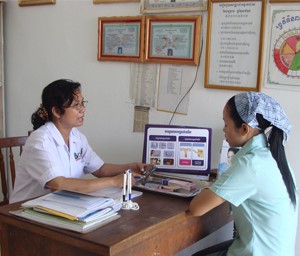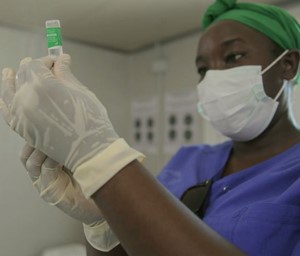This article explores comprehensive strategies to improve reproductive health outcomes. Key focus areas include education, accessible healthcare, community engagement, advocacy, innovations, mental health integration, youth-friendly services, cultural competence, preventive care, male engagement, trauma-informed care, peer support, and data-driven research, all aimed at fostering reproductive justice and well-being.

Reproductive health is a fundamental aspect of overall well-being, encompassing physical, mental, and social dimensions related to the reproductive system. It is not merely the absence of disease but also includes the ability to have safe and satisfying sexual experiences, make informed decisions about reproduction, and access appropriate healthcare services when needed. In this comprehensive exploration, we delve into the key challenges facing reproductive health globally and propose actionable strategies to enhance healthcare outcomes in this critical area.

Reproductive health is a broad concept that encompasses several interconnected aspects:
Family Planning:Family planning refers to the ability of individuals and couples to plan and space their children effectively, using contraceptive methods that suit their preferences and health needs.
Maternal Health:Maternal health focuses on ensuring safe pregnancy, childbirth, and postpartum care for mothers, reducing maternal mortality rates, and addressing complications during pregnancy and childbirth.
Sexual Health:Sexual health encompasses physical, emotional, mental, and social aspects of sexuality, including sexual pleasure, consent, reproductive rights, and prevention and treatment of sexually transmitted infections (STIs).
Reproductive Rights:Reproductive rights include the right to make autonomous decisions about reproduction, access to reproductive healthcare services, and freedom from discrimination based on reproductive choices.
Access to Healthcare:Access to comprehensive reproductive healthcare services, including contraception, prenatal care, abortion services, infertility treatments, and reproductive counseling, is essential for maintaining reproductive health.

Despite significant progress in reproductive healthcare, several challenges persist:
Lack of Access:Many individuals, particularly those in low-income and rural areas, lack access to essential reproductive healthcare services due to geographical barriers, financial constraints, lack of healthcare infrastructure, and cultural stigma.
Stigma and Discrimination:Stigma, discrimination, and cultural taboos surrounding reproductive health issues, such as abortion, contraception, and sexuality, create barriers to seeking healthcare and accessing accurate information.
Health Inequities:Marginalized populations, including women, adolescents, LGBTQ+ individuals, people with disabilities, and ethnic minorities, often experience disparities in reproductive health outcomes due to social determinants of health, systemic discrimination, and lack of tailored healthcare services.
Limited Education and Awareness: Insufficient education and awareness about reproductive health topics, including family planning methods, STIs, menstrual hygiene, and consent, contribute to misinformation, risky behaviors, and poor health outcomes.

Comprehensive Sex Education:Comprehensive sex education programs should be integrated into school curricula, community outreach initiatives, and healthcare settings to provide accurate, age-appropriate information on reproductive anatomy, contraception, STI prevention, consent, healthy relationships, and LGBTQ+ inclusivity.
Accessible Healthcare Services:Expand access to affordable and culturally sensitive reproductive healthcare services, including contraceptive counseling and provision, prenatal and postnatal care, infertility treatments, abortion services, and mental health support for individuals and couples.
Community Engagement and Empowerment:Empower communities, especially women, adolescents, and marginalized groups, through community-based education, peer support networks, and participatory decision-making processes in healthcare planning, implementation, and evaluation.
Advocacy and Policy Change:Advocate for reproductive rights, gender equality, and social justice through policy advocacy, legal reforms, and grassroots movements that address systemic barriers, promote reproductive autonomy, and eliminate discriminatory practices in healthcare.
Innovations in Reproductive Healthcare:Invest in research, innovation, and technology to develop new contraceptive methods, improve access to telemedicine and digital health solutions, enhance fertility treatments, and address emerging reproductive health challenges, such as climate change impacts on reproductive health.
Health Equity and Intersectionality:Adopt an intersectional approach to reproductive health that acknowledges the intersecting identities and experiences of individuals, addresses social determinants of health, and promotes equity, diversity, and inclusion in healthcare policies and practices.
Collaboration and Partnerships:Foster collaboration among healthcare providers, community organizations, government agencies, civil society groups, academia, and private sector stakeholders to coordinate efforts, share best practices, leverage resources, and maximize impact in improving reproductive health outcomes.
Mental Health Integration: Incorporate mental health services into reproductive healthcare settings to address psychological well-being, emotional support, and mental health disorders related to reproductive experiences, such as postpartum depression, infertility distress, pregnancy loss grief, and trauma-informed care for survivors of sexual violence.
Youth-Friendly Services: Develop youth-friendly reproductive healthcare services that cater to the unique needs, preferences, and rights of adolescents and young adults, including confidential consultations, non-judgmental counseling, accessible contraception, STI testing, and sexual health education tailored to their developmental stage and cultural context.
Culturally Competent Care: Provide culturally competent and linguistically appropriate care by training healthcare providers in cultural humility, anti-racism, LGBTQ+ sensitivity, and trauma-informed practices to ensure respectful, non-discriminatory, and patient-centered reproductive healthcare for diverse communities and identities.
Preventive Care and Screening: Promote preventive care through regular reproductive health screenings, such as Pap smears, mammograms, HPV vaccinations, breast exams, prostate checks, and STI testing, to detect early signs of reproductive cancers, infections, and other health conditions for timely interventions and disease prevention.
Male Engagement and Support: Engage men and male partners in reproductive health conversations, education, and decision-making processes by offering male-focused reproductive health services, fatherhood support programs, contraception options for men, infertility evaluations, and promoting active involvement in maternal and child health initiatives.
Trauma-Informed Care: Implement trauma-informed care practices in reproductive healthcare settings to recognize and address the impact of trauma, violence, abuse, and historical injustices on individuals' reproductive experiences, mental health, and healthcare-seeking behaviors, fostering healing, trust, and empowerment.
Peer Support and Advocacy: Establish peer support groups, community networks, and patient advocacy organizations that amplify the voices of individuals with lived experiences in reproductive health, provide emotional support, share resources, advocate for policy changes, and promote resilience, solidarity, and collective empowerment.
Data Collection and Research: Invest in data collection, monitoring, and research efforts to gather evidence, track progress, identify disparities, measure outcomes, and inform evidence-based practices, policies, and interventions in reproductive health, fostering continuous learning, innovation, and accountability in healthcare delivery.
By implementing these comprehensive strategies and fostering a collaborative, inclusive, and rights-based approach to reproductive healthcare, we can achieve tangible improvements in healthcare outcomes, promote reproductive justice, and uphold the dignity, rights, and well-being of individuals and communities worldwide.
Improving reproductive health outcomes requires a holistic and rights-based approach that addresses the complex interplay of social, economic, cultural, and political factors. By prioritizing education, access, empowerment, advocacy, innovation, equity, and collaboration, we can create an enabling environment where everyone, regardless of gender, age, ethnicity, or socioeconomic status, can exercise their reproductive rights, make informed decisions about their health, and access quality healthcare services that promote dignity, autonomy, and well-being. Reproductive health matters, and it is imperative to invest in comprehensive strategies that ensure improved healthcare outcomes and a healthier future for all.